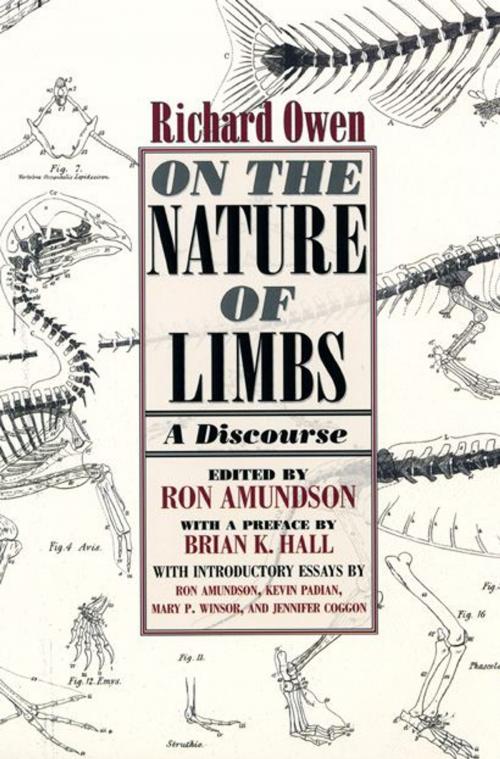On the Nature of Limbs
A Discourse
Nonfiction, Science & Nature, Science, Biological Sciences, Biology, Other Sciences, History| Author: | Richard Owen, Brian K. Hall | ISBN: | 9780226641959 |
| Publisher: | University of Chicago Press | Publication: | November 15, 2008 |
| Imprint: | University of Chicago Press | Language: | English |
| Author: | Richard Owen, Brian K. Hall |
| ISBN: | 9780226641959 |
| Publisher: | University of Chicago Press |
| Publication: | November 15, 2008 |
| Imprint: | University of Chicago Press |
| Language: | English |
The most prominent naturalist in Britain before Charles Darwin, Richard Owen made empirical discoveries and offered theoretical innovations that were crucial to the proof of evolution. Among his many lasting contributions to science was the first clear definition of the term homology—“the same organ in different animals under every variety of form and function.” He also graphically demonstrated that all vertebrate species were built on the same skeletal plan and devised the vertebrate archetype as a representation of the simplest common form of all vertebrates.
Just as Darwin’s ideas continue to propel the modern study of adaptation, so too will Owen’s contributions fuel the new interest in homology, organic form, and evolutionary developmental biology. His theory of the archetype and his views on species origins were first offered to the general public in On the Nature of Limbs, published in 1849. It reemerges here in a facsimile edition with introductory essays by prominent historians, philosophers, and practitioners from the modern evo-devo community.
The most prominent naturalist in Britain before Charles Darwin, Richard Owen made empirical discoveries and offered theoretical innovations that were crucial to the proof of evolution. Among his many lasting contributions to science was the first clear definition of the term homology—“the same organ in different animals under every variety of form and function.” He also graphically demonstrated that all vertebrate species were built on the same skeletal plan and devised the vertebrate archetype as a representation of the simplest common form of all vertebrates.
Just as Darwin’s ideas continue to propel the modern study of adaptation, so too will Owen’s contributions fuel the new interest in homology, organic form, and evolutionary developmental biology. His theory of the archetype and his views on species origins were first offered to the general public in On the Nature of Limbs, published in 1849. It reemerges here in a facsimile edition with introductory essays by prominent historians, philosophers, and practitioners from the modern evo-devo community.















